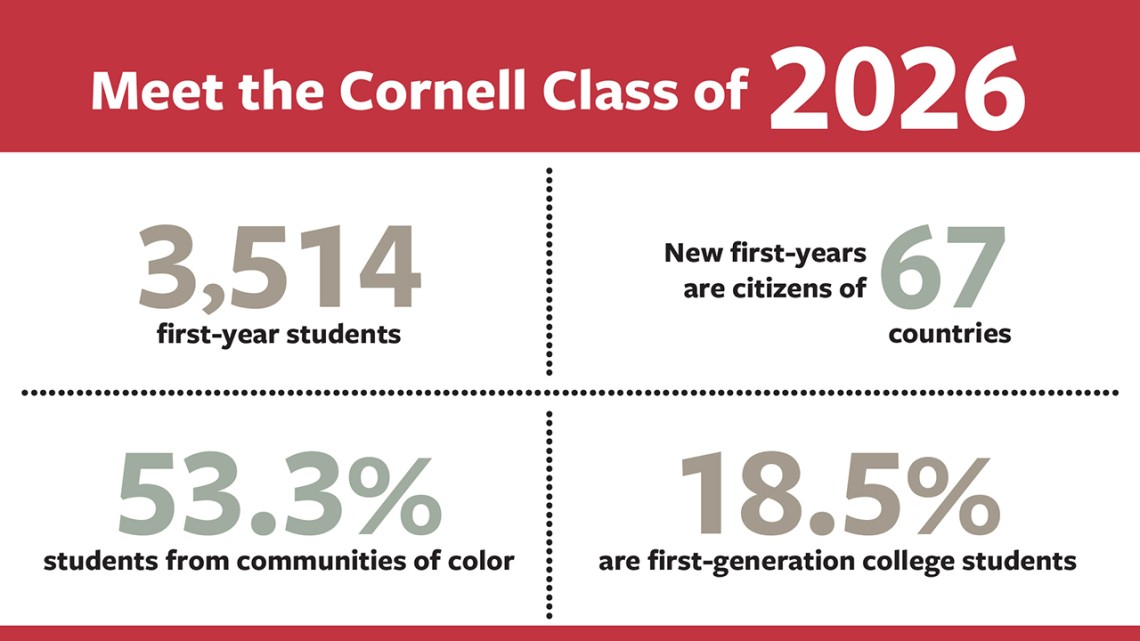
Talented Class of ’26 begins fall semester
By Shawn Felton
A six-time Emmy Award winner, an internationally competitive juggler, a licensed falconer and an Alzheimer’s disease researcher focused on early detection algorithms are among the members of the Class of 2026 – one of the most diverse and accomplished classes in Cornell’s history.
The 3,514 first-year students who began classes on Aug. 22 hail from 67 countries and almost every state, plus the District of Columbia, Puerto Rico and the U.S. Virgin Islands. More than 53% of these new Cornellians come from communities of color, and 18.5% are the first in their families to attend college.
More than half of the incoming class will receive need-based financial aid, with the average need-based grant award from university sources totaling nearly $52,000, an increase demonstrating Cornell’s commitment to expanding access and affordability.
A total of 542 transfer students also joins the Cornell student body.
Jonathan Burdick, vice provost for enrollment, said the incoming students have been shaped by the COVID-19 pandemic, which upended their high school years and taught them to “thrive under the most challenging of personal circumstances and conditions.
“Our new students will require continuing grace and understanding from their Cornell advisers, instructors, mentors and peers,” Burdick said. “As a community, we have an opportunity to further refine the growing resilience within our students and help them more readily identify challenges and obstacles and see them as opportunities.”
Among the incoming students:
- A volunteer member of the Marin County Search and Rescue, who trained to search for missing persons and forensic evidence;
- A founder of Cleaner Oceans Institute, advocating for climate policy that affects low-income communities in New York City;
- The creator of a free statewide tutoring program for students struggling because of the pandemic;
- The founder of a youth tech group to help members of a rural Georgia community access technology;
- A competitive Chinese zither performer;
- The leader of a robotics team that created a patent-pending AI-powered hat with cameras and sensors to allow the visually impaired to navigate independently;
- A member of the National Student Council, founder of diversity council and leader of conversations on social justice at school;
- The founder of a Bob Ross Club, to provide a creative and stress-free outlet for fellow students;
- A teacher of classical languages to youth through the Paideia Institute;
- A fishkeeper who manages aquariums and breeds and raises fish, shrimp, snails and axolotls for sale to local buyers and pet stores;
- A three-time Carnegie Hall piano performer; and
- A U.S. figure skating gold medalist.
Cornell continued to support future students by offering robust virtual programming and making optional the reporting of the ACT and SAT. Burdick praised admissions staff, who also pivoted by providing more engagement opportunities and reading more applications in greater depth.
“Cornell’s reward for the hard work of its admissions staff is more extraordinary breadth and depth, individually and collectively, in the capacities and ambitions of our newest students,” he said.
Get Cornell news delivered right to your inbox.
Subscribe
